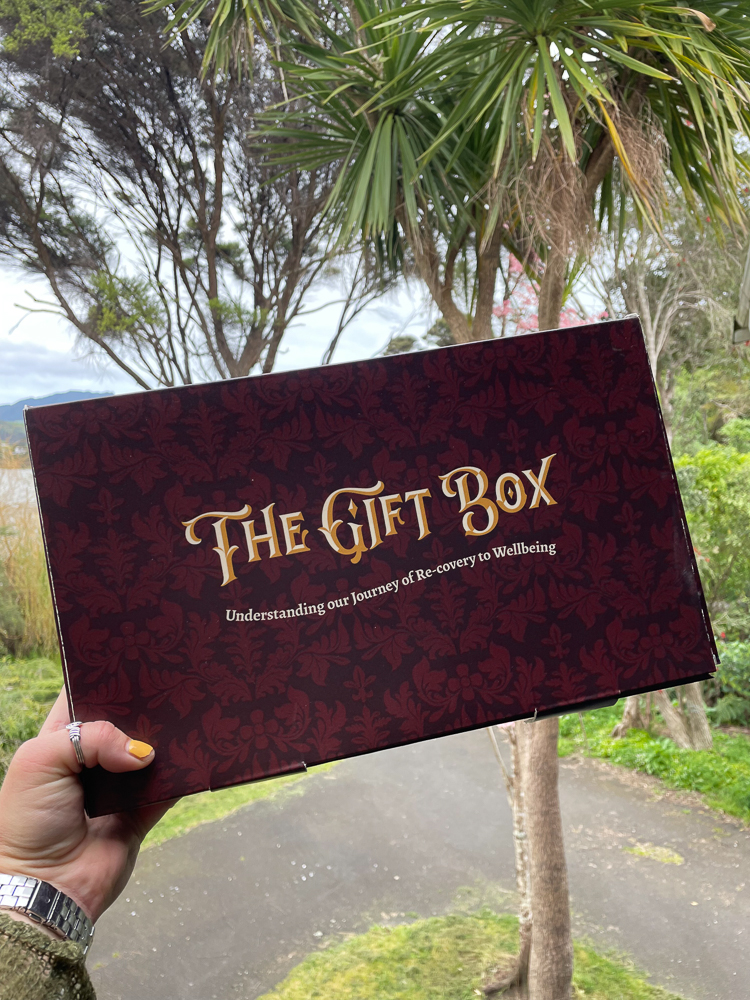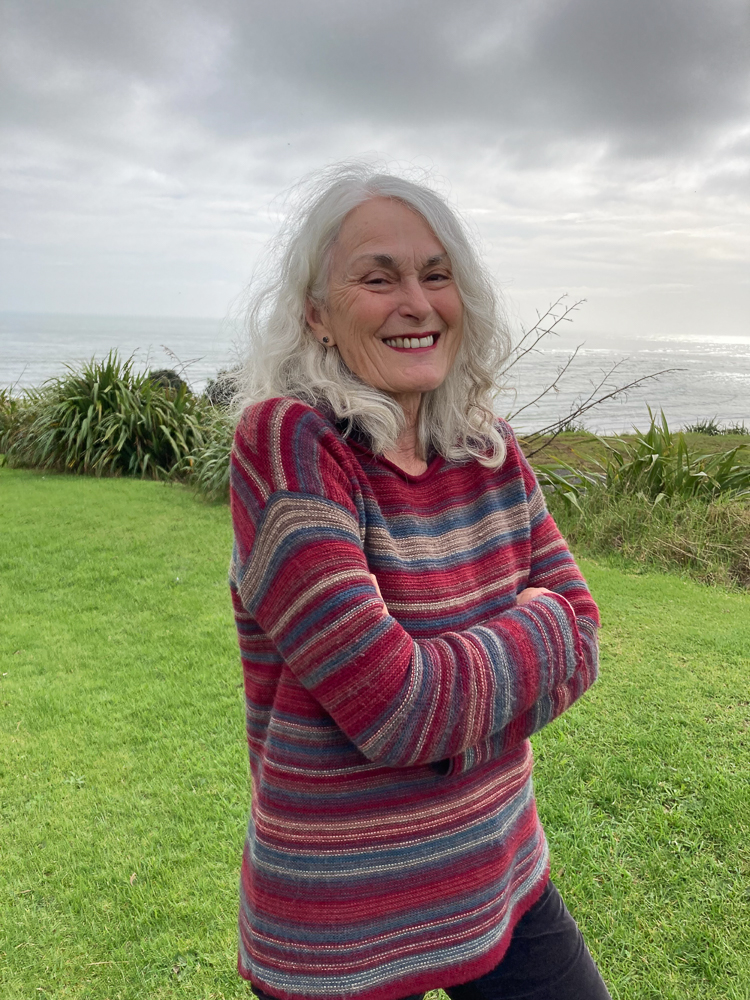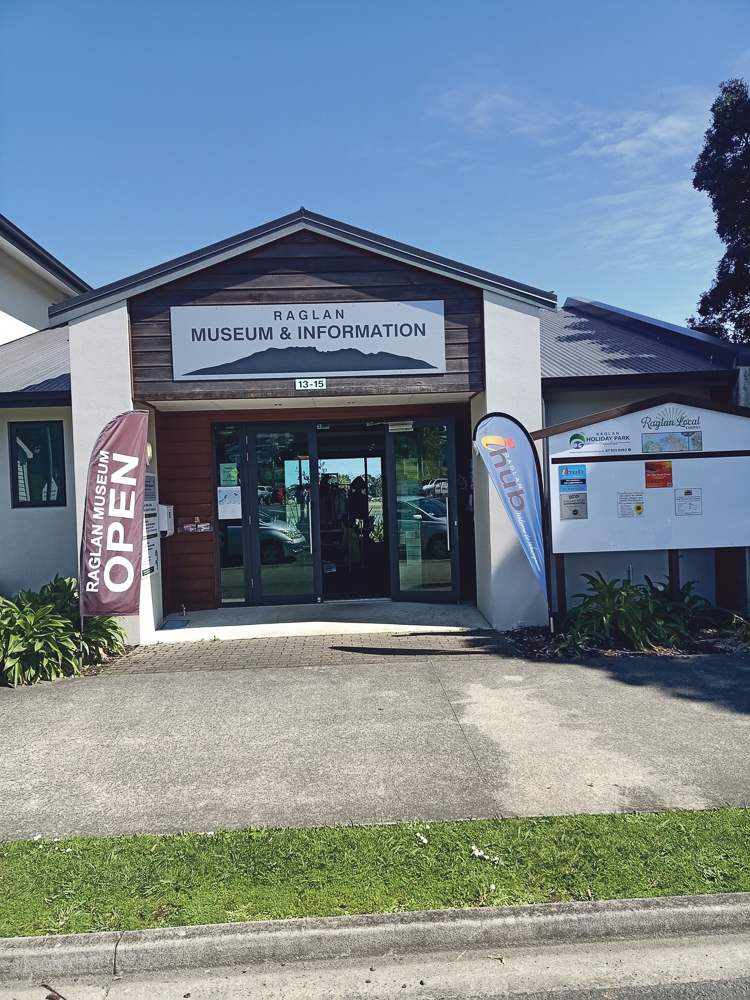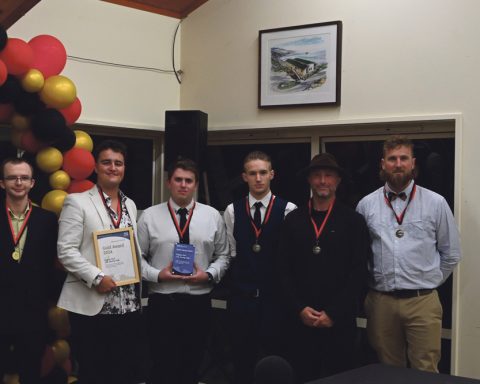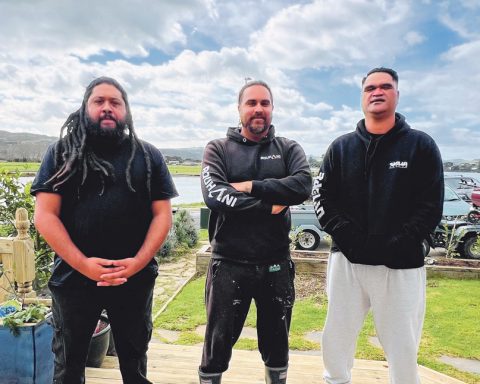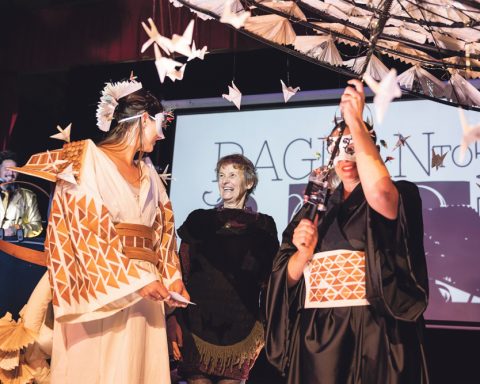In this month’s mental health chat, Ruby speaks to Dr. Patte Randal.
Tell me about your career and history with mental health.
Well, I’m a doctor trained in psychiatry. I’ve been retired from clinical practice for the past eight years. For most of that time I’ve lived in the Waikato. I’ve done a little bit of work with the Waikato District Health Board on a project which has become The Gift Box. I’ve had the opportunity to tell my own story about my journey of recovery which I won’t go into here but if people want to hear about it, they can access a book I’ve just published with Dr Josephine Stanton called Finding Hope In The Lived Experience of Psychosis: Reflections on Trauma, Use of Power, and Revisioning Psychiatry (Routledge 2022).
What is some of the research behind The Gift Box that you have developed?
The Gift Box is the culmination of over thirty years work in mental health services. For the last 18 years of my clinical career I was based at Buchanan Rehabilitation Centre in Auckland. I worked there initially as a registrar, having already done quite a lot of my training in psychiatry. Because of my lived experience of recovery I had a different approach with people. I was given the opportunity to do a piece of research with a group of people who I’d already made a connection with and walked alongside them through their journey. For those people I worked with, they did clinically and statistically better than the people who were receiving more traditional custodial care. I used the original concept of “re-covery”. The idea is this very simple spiral that I relate to the Spot the Spiral page in the Mental Health Toolbox. We are re-covering the same old ground in our attempt to recover from what’s happened to us in our lives. What this re-covery model suggests is that every crisis can be an opportunity to actually become more resilient. When I talk about re-covering, I think of the fact that we are on this planet that goes round and round the sun and everything is cyclical, so the journey of recovery is not linear. We develop patterns in our lives and we can get caught in those patterns and they often become vicious cycles. It takes courage and focus to actually notice our patterns and to begin to change our thoughts and our actions so that our feelings will change. Our feelings are great and important and they are a guide for what’s happening to us but we don’t want to be living in the doldrums because of what’s happened to us. So the thing about The Gift Box is that it’s not a self help tool, not a thing one person can take off and use. It’s a set of tools to support services and individuals and family members to support one another to build up this awareness and understanding of ourselves so we can all become resilient, together.
What are the core concepts in The Gift Box?
Well, firstly is trying to picture your life as a spiral. We are all born with resilience and vulnerability and the traumas of life increase our vulnerability to stress. We tend to re-cover old ground, repeating old patterns, this can result in spirit breaking vicious cycles. These cycles are usually why people come into mental health services because they’ve had risky actions or extreme thoughts and they’re behaving in ways that worry them or their family. However, if each new life crisis is viewed as an opportunity to understand ourselves better and if we all have that perspective, we can learn to make different choices, experience less distress and create hope inducing victorious cycles. The Gift Box is full of resources, such as prompt cards, to help us get to those victorious cycles and there’s even the Feelometer which is a talking stick going from 0% to 100% and it helps us recognise for ourselves where nought is and where 100 is. We are not trying to be 100 all the time, what we are trying to do, just like what you did with the Mental Health Toolbox is to try and say look if you’re at 20, how do you get to 30? There is also the concept of Building a Bridge of Trust. This is about figuring out together what is needed to feel safe, and sensing what is helpful to share with one another.
What is the cycle of body sensations, feelings, thoughts and actions?
So the cycle goes around from body sensations to feelings to thoughts to actions but sometimes you go from body sensations to actions and it’s already too late, you’ve reacted and you’ve done something catastrophic. Figuring out what helps you to slow things down and having the support to do that is very important in creating these victorious cycles. The other part of this is knowing our triggers. It’s all of these things that influence our resilience and vulnerability factors; biological, socio/occupational, psychological, cultural and spiritual. The spiritual context is how we make sense of our suffering because that’s so important when we’ve been through these experiences. Our lives exist in what I call a spiritual or meaning-making context.
Why is it important for people to gather these tools and get them for themselves?
So that we don’t keep repeating our vicious cycles. The trouble is, life doesn’t stay in one place. If we keep repeating vicious cycles, we do end up in places that no one wants to be. It’s useful to understand our patterns. Things can get worse before they get better and I found that with my own journey, but also mindfulness is about really noticing those very early warning signs. In my experience, the earliest warning sign is changes in body sensations, which took me a long, long time to wake up to.
What can people implement from this model that might help them step into victorious cycles?
Well I think just holding the framework in mind. A crisis is an opportunity and it feels terrible and terrifying at the time but if we can get into this mindset and if we get the support we need, we can turn it into a victorious cycle as opposed to a vicious cycle. That’s a really good place to start for people.
What is next for the Gift Box?
It’s currently in its developmental stage and I’m doing an implementation project with it so there are only a limited number of boxes in New Zealand. There are very positive results coming out but it needs champions and investments and if people are interested they can get in touch with me. It’s also important to note that this was developed in the context of extreme states of psychosis so the beauty of this is that we know it works for the extreme situations so of course it will also work right across the spectrum. Because we are all us.
If people would like more information, please visit talkthatheals.org to read more about the book and The Gift Box.
